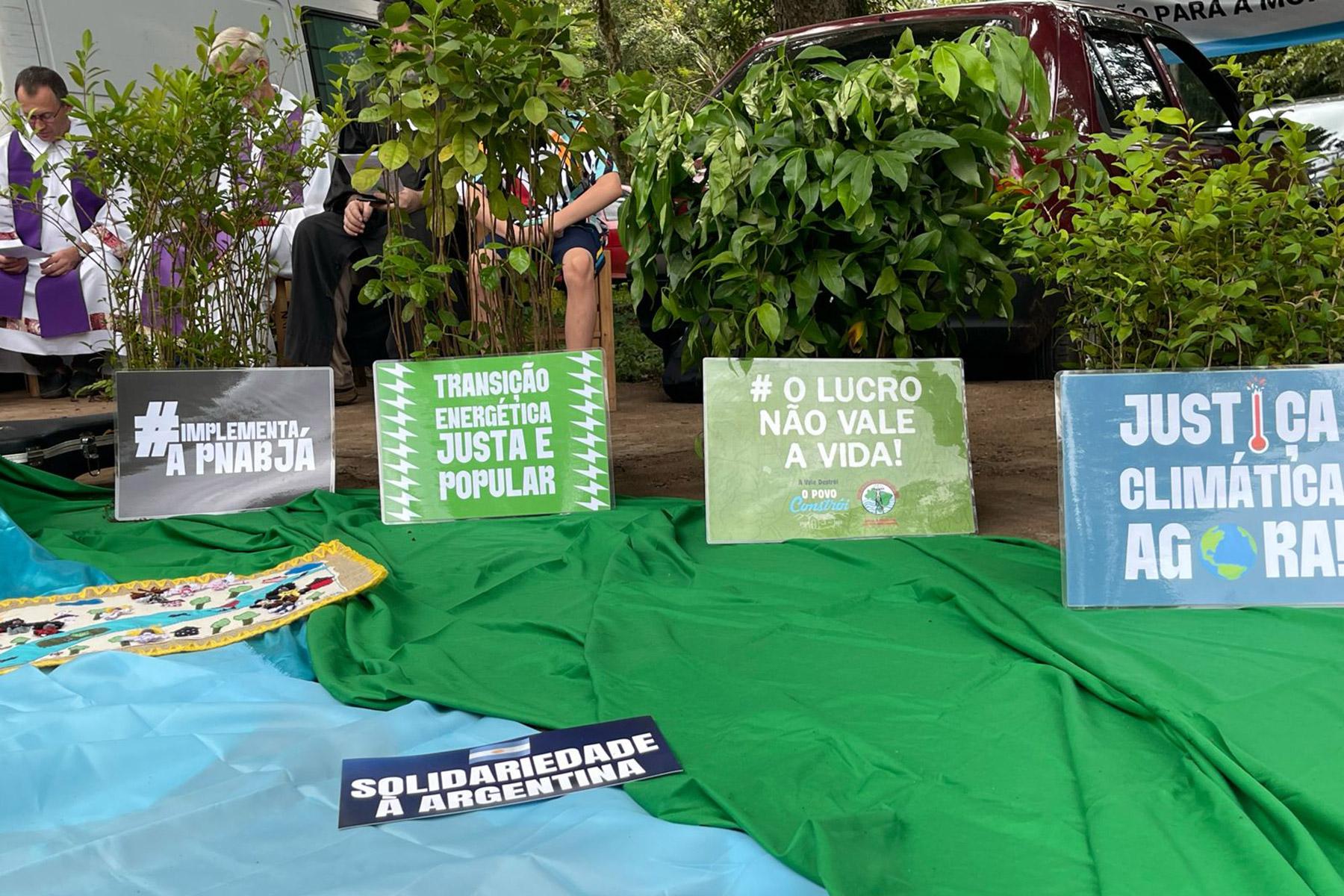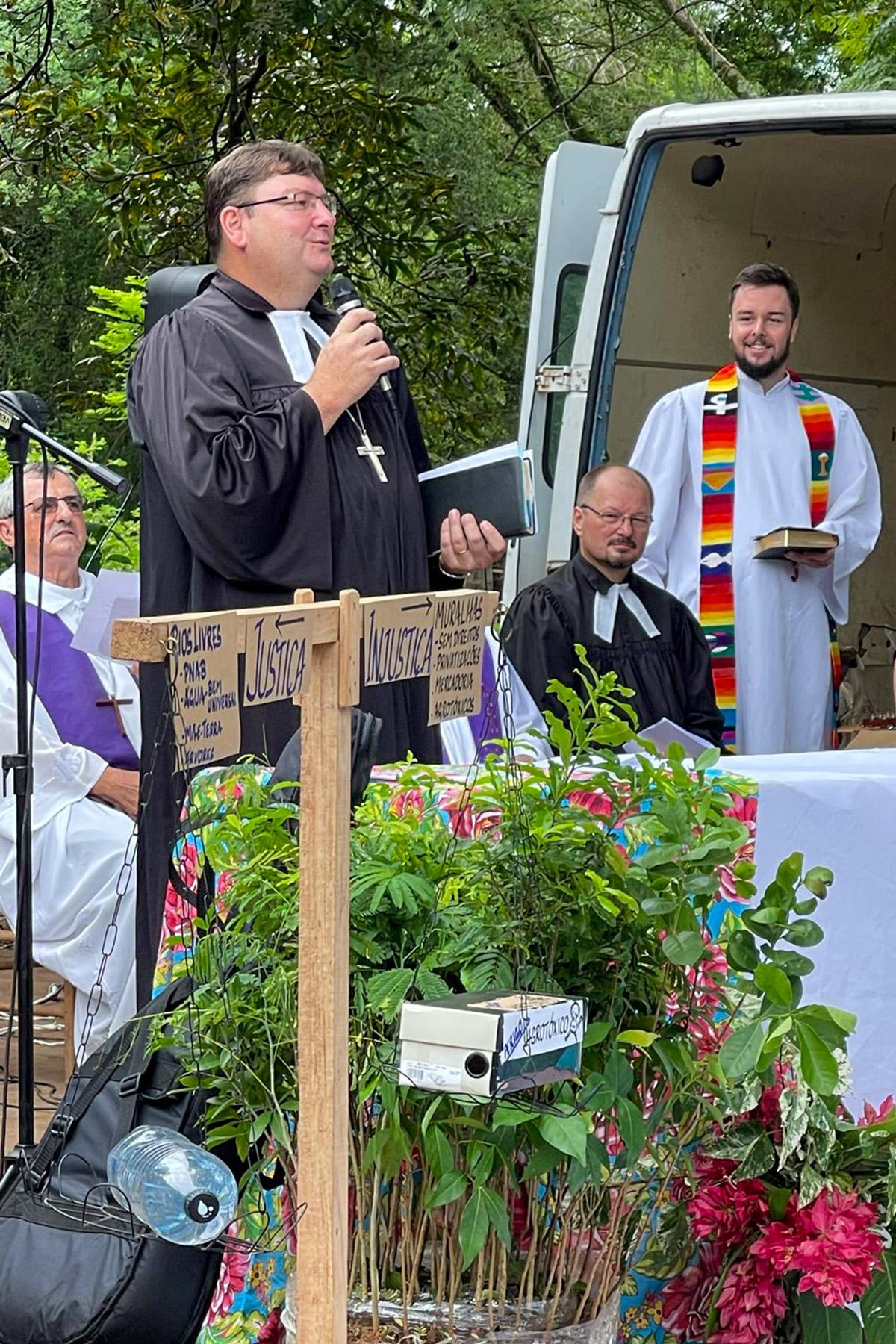Churches advocate for the rights of communities along the Uruguay River
(LWI) - “Water for Peace” is the theme for the 2024 UN World Water Day observed on 22 March. “We must act upon the realization that water is not only a resource to be used and competed over – it is a human right, intrinsic to every aspect of life,” states the UN Water.
The Lutheran Federation (LWF) member churches and ecumenical partners in the countries along the Río Uruguay, a major river in South America, have advocated for “Free Rivers” – Ríos Libres – since the 1980s. They criticize the environmental, land-use and social impacts that large dams and industrial plants cause along the river.
“Even though we are now witnessing the pain caused by the changes in natural cycles, bringing death and destruction on all sides and for all people, especially the most socioeconomically fragile, our hope is in the empty cross, in the resurrection, in full and abundant life,” said Rev. Fábio Rucks from the Evangelical Church of the Lutheran Confession in Brazil (IECLB).
He preached on 9 March during the 7th Binational Ecumenical Celebration for Free Rivers. The event took place in the border region between Brazil and Argentina, where the Uruguay River joins the two countries at Porto Lucena, Brazil.
Participants came from the IECLB, Evangelical Church of the River Plate (Argentina/Uruguay), United Evangelical Lutheran Church (Argentina/Uruguay), and the Diocese of Santo Ângelo of the Catholic Church (Brazil).
The Río Uruguay is about 1,800 kilometers long and forms parts of the borders of Brazil, Argentina and Uruguay. Its primary economic use is the generation of hydroelectricity. For that, that river is dammed in its lower portion by the Salto Grande Dam, a reservoir completed in 1979, covering a surface area of 783 square kilometers, and shared by Argentina and Uruguay, and by the Itá Dam upstream in Brazil, completed in 2000 and covering a surface area of 141 square kilometers. The electricity these plants generate significantly contributes to these nations’ energy supply.







